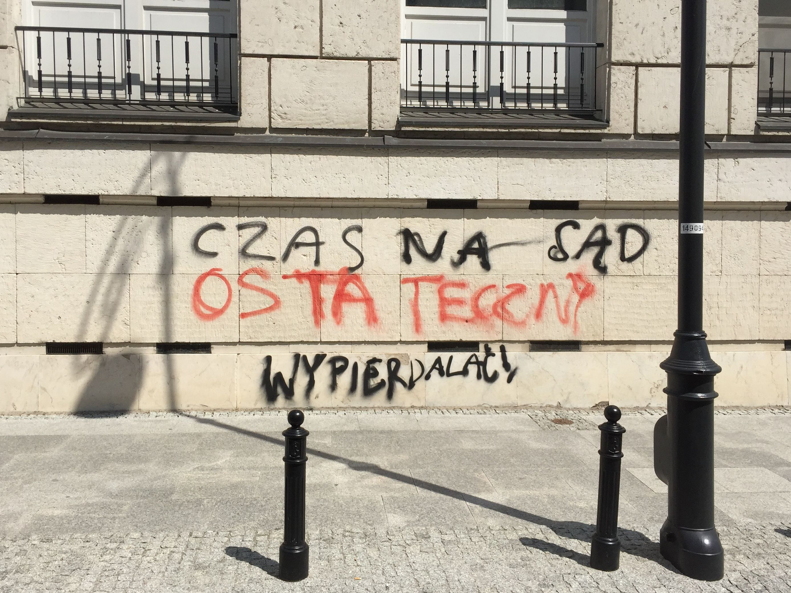Photo: Polish Parliament, Warsaw, July 2018, “Time for the final court—final judgment”
In the third book of Thucydides’ History of the Peloponnesian War, we find the historian’s account of the effects of an unbridled pursuit of power and the subsequent lawlessness on Athenian society: “When men are retaliating upon others, they are reckless of the future, and do not hesitate to annul those common laws of humanity to which every individual trusts for his own hope of deliverance should he ever be overtaken by calamity; they forget that in their own hour of need they will look for them in vain.”
This summer Thucydides’ warnings returned with all their urgency: on July 4, 2018, Poland’s Act on the Supreme Court, which resulted in the dismissal of nearly 40 percent of its judges, came into force amid widespread protests, including outspoken opposition by the court’s President, Małgorzata Gersdorf. The Act is the latest step in the Law and Justice party’s extensive judicial overhaul (the Act on the Supreme Court has ominously been called by protestors “the final judgment”).
This special dispatch is a follow-up to Ellen’s earlier piece on Poland, which is available here. As the International Correspondent for New England Review, Ellen Hinsey has lived in Paris since 1987, and witnessed firsthand the fall of the Berlin Wall and the Velvet Revolution in Czechoslovakia. Her work has appeared in publications such as the New York Times, the New Yorker, Die Welt, Paris Review, and Poetry, and her most recent books are Magnetic North: Conversations with Tomas Venclova and The Illegal Age, a poetic investigation into the twentieth-century’s legacy of totalitarianism and the rise of political illegality.
